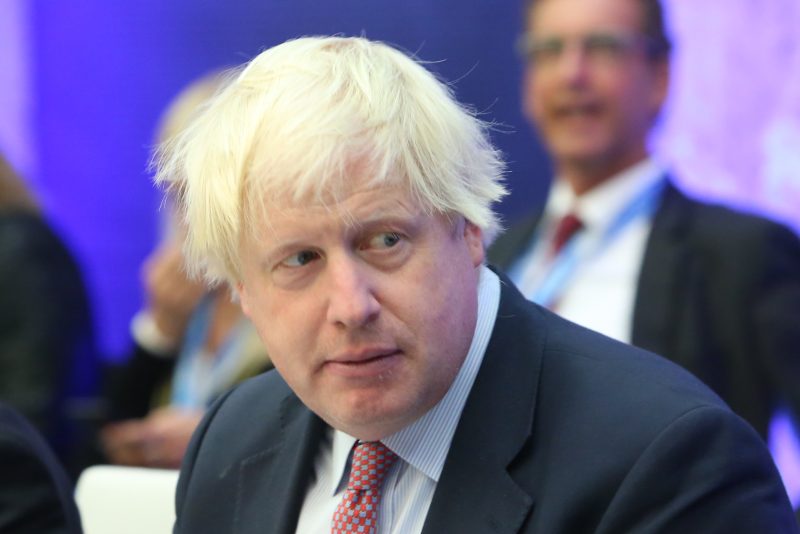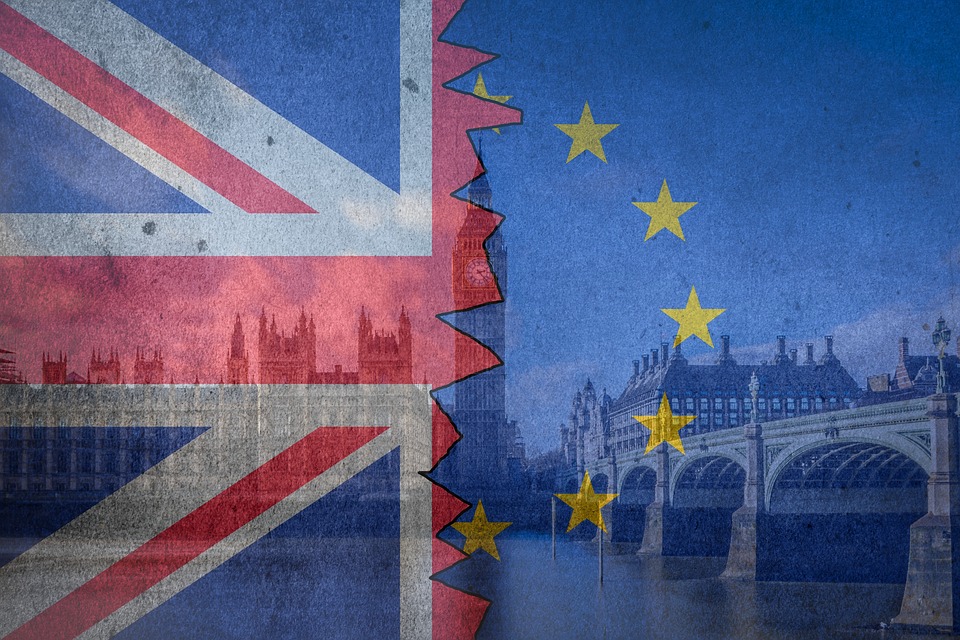The European Union encouraged the United Kingdom’s decision to withdraw by January 31 2020. Britain intends to hold early elections on December 12, hoping to resolve the political deadlock – 438 of the 650 members of the lower house of parliament voted in favor of the measure, while only 20 stood opposed.
The EU27 has agreed that it will accept the UK's request for a #Brexit flextension until 31 January 2020. The decision is expected to be formalised through a written procedure.
— Charles Michel (@eucopresident) October 28, 2019
If the UK is ready earlier and ratifies the exit agreement, it may withdraw from the EU before the set date.
On the one hand, the decision to defer deprived British Prime Minister and Conservative Party leader Boris Johnson of his last chance to fulfill his promise to achieve Brexit by October 31. On the other hand, Johnson himself believes that the early elections will help the Tories to strengthen their positions in the House of Commons and allow them to obtain a popular trust mandate to withdraw the country from the union.
Although the British people decided to leave the EU in a 52% to 48% decision in 2016, recent political hesitation and uncertainty about the outcome of the election could further disrupt the process…
A complicated process
Former Prime Minister Theresa May unsuccessfully tried three times to pass an agreement with the EU on Brexit before being forced to resign. The Conservative Party then handed over the post of Prime Minister to Boris Johnson, who has consistently campaigned for the EU’s exit.
Overall, there are three possibilities for the United Kingdom:
1) A hard-Brexit scenario where the country severs ties with the EU completely.
2) A situation wherein the country leaves the EU, but maintains close relations (if not politically, than at least economically).
3) London conducts a new referendum and radically reverses the earlier decision on Brexit.
Election scenarios
Boris Johnson hopes that, with him at the helm, the Conservative Party will win an absolute majority of seats in the early elections, which will help break the stalemate on Brexit and settle the chaotic situation in Parliament.

Wikimedia Commons
At the moment, public opinion polls show that conservatives and pro-Brexit Forces are at an electoral advantage, but this analysis is complicated by questions around constituency, as the UK has a majoritarian electoral system. Will the conservatives be able to gain a majority, or will they have to form an alliance? This is the big question.
According to Britain Elects’ poll aggregator, at the moment, the Tories have a strong lead over their main rivals, the Labour Party. The Conservatives are polling at around 36.1%, Labour at 24.9%, Liberal Democrats at 17.8%, the Brexit Party at 11.2%, the Green Party at 3.9% and all other parties together sitting at around 5.6%.
At the moment, the situation is rather unorthodox: the Prime Minister does not have a majority (he has only 287 of the 639 possible votes). Accordingly, Johnson’s strength will depend on the outcome of the December elections – if the Tories win the majority, he will have much more room to maneuver. However, if the parliament gets hung again, it will be necessary to go through the painful process of forming a strained coalition. In such a scenario, the Brexit process could drag on indefinitely.
If the opposition wins a majority, it is likely that any deal with the EU – old or new – will be put up to another referendum. This would mean, at the very least, postponing Brexit, and, at most, cancelling it altogether. Labour leader Jeremy Corbyn has already said that he sees the upcoming vote as a chance to win, in which case he intends to hold a second referendum.
Corbyn says that a Labour government would be on the side of the people, arguing that the Tories only care about a privileged minority. He has attracted the electorate with promises to re-nationalize the country’s railway systems, energy sector and water supply… are these promises a realistic possibility? The question is still up for debate.
???? Launching now! ???? https://t.co/q7wKGJRl9v ????
Check it out and come join us on Super Saturday!#generalelection19 #GE19 pic.twitter.com/PmymPecH1J
— Momentum ???? (@PeoplesMomentum) November 1, 2019
Election details
To win an election in one of the country’s 650 constituencies, a candidate only needs to outperform all other contestants: there are no second rounds. There is a chance that the candidates from the party ranked second in the polls will also come in second place in each constituency. This would mean that, although a huge number of voters supported a particular party, it would nonetheless not have a single MP in parliament.
Conservatives are worried about regions such as Scotland and London where there is a significantly high percentage of Brexit opponents. At the same time, the Tories retain strong positions in northern and central England, which predominantly voted in favor of the exit from the EU.
The Conservatives’ are also excited by the hype around Nigel Faraj’s Brexit party. Labour, on the other hand, is allied with the liberal democrats who also oppose Brexit.
We are prepared to put country before party if Boris ditches this dreadful EU treaty.
The time has come for a Leave alliance to deliver Brexit once and for all. pic.twitter.com/MXmSDHA44J
— Nigel Farage MP (@Nigel_Farage) November 1, 2019
Problems
If the opposition wins or strengthens its position, they will introduce a ratification to the Brexit deal committing Britain to remain in a customs union with the EU, which, in the view of Johnson and other Brexit supporters, would essentially make the deal meaningless.
In the customs union, despite Britain’s official withdrawal from the EU, trade with the European Union would continue to move freely, without tariffs and quotas. At the same time, it will deprive the country of the opportunity to enter into free trade agreements with the United States. This policy contradicts one of the main goals of the Brexiteers: ensuring free trade and independent foreign trade policy.
According to the preliminary agreement, the difficult situation on the Irish border will be resolved by the so-called “Two borders for four years” scenario, which implies special regulation of zones to avoid customs control at the border between the Republic of Ireland and Northern Ireland. In addition, there will be no customs points at the border.
The problem with this, according to the Brexiteers, is that moving the customs border into the Irish Sea and coming to an agreement wherein Northern Ireland will be subject to EU law would undermine Johnson’s goals. As a matter of fact, it would mean that in many ways the European Union has already achieved its goal of making the Brexit processes as uncomfortable and painful as possible so that other countries will think twice before attempting to do the same.

















Leave a Reply